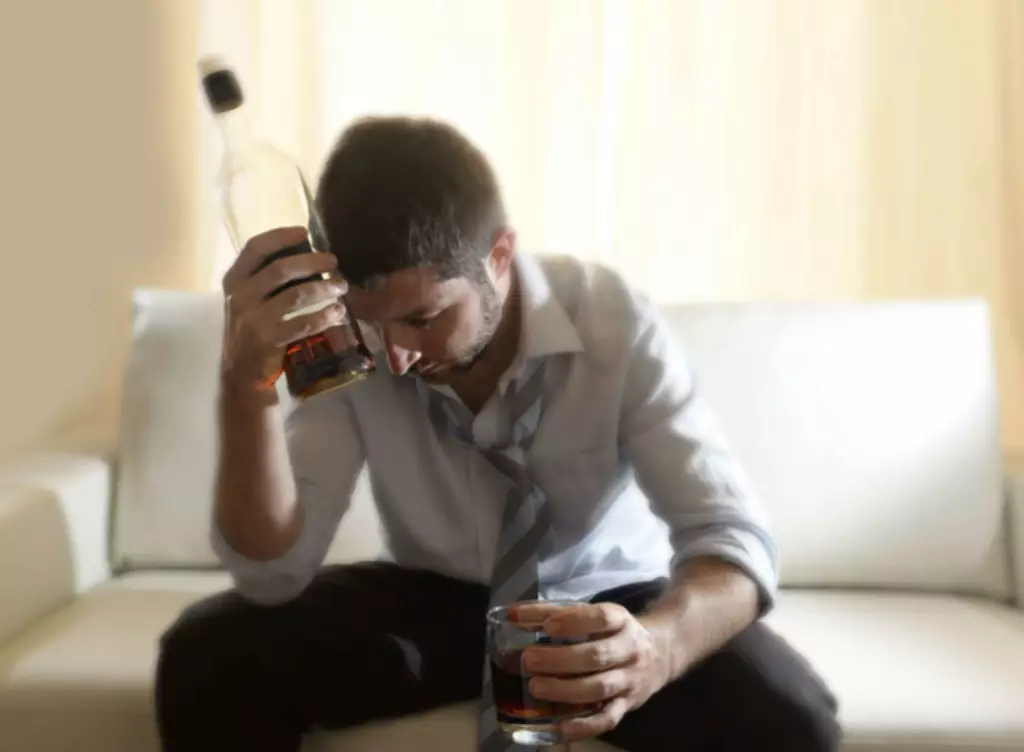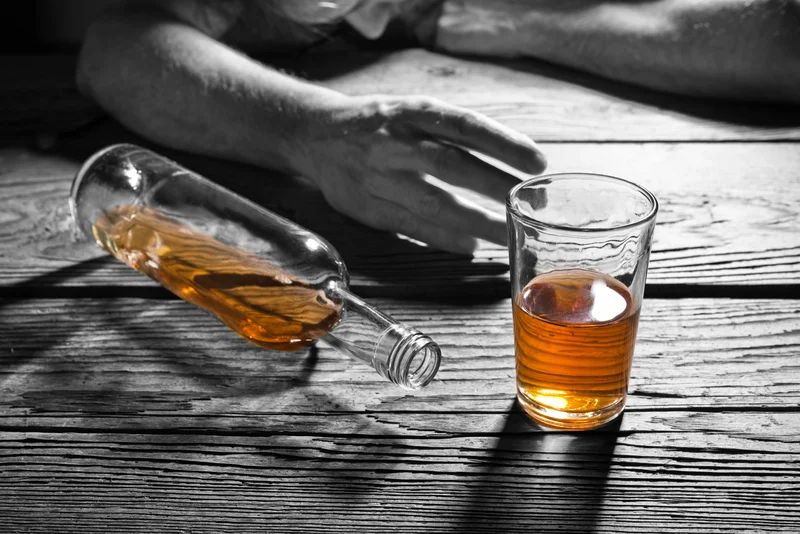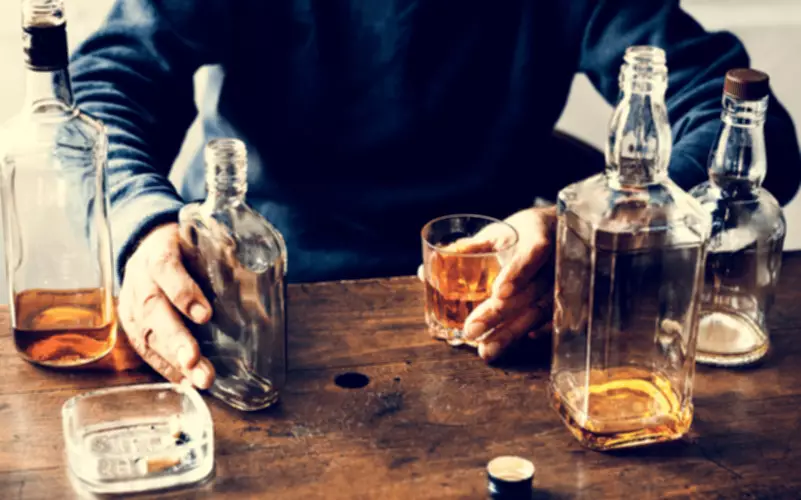One of the biggest issues surrounding this significant public health concern is its normalization in specific social contexts, including college campuses and various social gatherings. In these instances, large amounts of alcohol are consumed rapidly, which can lead to multiple issues like alcohol poisoning, accidents, injuries, and various long-term health consequences. Binge drinking is most prevalent among adults aged 18 to 34, but it affects individuals across all age groups. Kembali Rehab Centre offers a compassionate and comprehensive approach to alcohol addiction treatment. Understanding these distinctions is key to understanding and addressing problematic drinking habits. Binge drinking frequency decreases with age but remains common among older adults. More than 1 in 10 people aged 65 and older binge drink at least once a month. Although binge drinking is not necessarily a sign of AUD, it can indicate an alcohol problem. Fortunately, resources and treatment options are available to help you recover from addiction. Perhaps online therapy or online rehab courses would help you overcome a binge drinking habit. A modern, online approach allows you to receive guidance and support whenever you need it, and on your own schedule. We understand that everyone’s needs are unique, and therefore we adapt solutions to accommodate your lifestyle. Our science backed approach to habit forming and modification has helped our members achieve balance, happiness, and a healthier relationship with drinking. Our focus on mindful drinking at Sunnyside means we promote a judgment-free way to learn about the benefits of mindful drinking. We aren’t here to how to stop binge drinking teach you how to stop but instead how to develop safe and healthy lifestyle habits and goals. Start your recovery journey by calling our admissions team today. Binge drinking was also found to be twice as common amongst the highest earners when compared to the lowest earners. Stress management is crucial since stress is a major trigger for many people. This might include regular exercise, meditation, deep breathing exercises, or engaging in hobbies you enjoy. Find what works for you and make it a regular part of your routine. Stress is often one of the most significant drivers of binge drinking. Many people turn to Sober living house alcohol or other substances as a way to self-medicate and alleviate symptoms of stress, anxiety, or depression. It can be helpful to think about why you drink and your triggers. Is it boredom, a routine, peer pressure, work-related stress, or something you do to relax? First things are first, you want to know how much you are drinking overall to find out how bad the problem really is. Using an alcohol drinks journal lets you keep track of the amount you drink per session. When you can look at the cold, hard facts, you cannot escape how much you drink. We also provide access to support groups and relapse prevention resources in our aftercare program. However, recurring episodes of binge drinking are likely to lead to long-term health problems, including long-term liver damage and disease. Additionally, research shows that long-term problematic drinking increases one’s risk for several cancers5, including those of the mouth, colon, and liver. Binge drinking has both short and long-term effects on your physical and emotional health. Informing those who are often around you of your issue can increase your accountability. Knowing of your struggle also https://ecosoberhouse.com/article/essential-tremor-alcohol/ enables your family members or friends to offer whatever help they can–whether it’s helping you avoid triggers or being a person you can talk to. Alcohol misuse may lead to alcohol addiction which requires detoxification and treatment to care for the condition in the safest way. We provide 24/7 care and have a ratio of three staff members to every one resident, meaning that you will have a comfortable and attentive environment to detox in. Alcohol abuse can cause or worsen symptoms of depression, anxiety, and sleep disorders. You might experience adverse effects on your mood while you’re intoxicated and even after you sober up. Alcohol abuse and mood disorders can even form a dangerous cycle. For example, if you and your husband are going to a party together, agree beforehand that he will be the designated driver. For example, they might decide to stick to one drink per occasion or no more than three drinks per week. When you’re drinking together, remind them of the limit they set for themselves.How to Stop Binge Drinking for Good


Mental Health Issues

How to stop binge drinking on the weekends
How to maintain a healthy lifestyle during recovery

Strategies for Stopping Binge Drinking: Practical Steps to Take
Adopting a Healthy Lifestyle
Identifying the Triggers: Why Do People Binge Drink?

Impact of Binge Drinking on Brain Development
https://allmy.bio/totoagung2-slot
https://lit.link/en/qdal88link
https://news-business.co.uk/slot-gacor-4d/
https://instabio.cc/qdal88-slot
https://heylink.me/link-alternatif-situs-slot-gacor-online-amintoto/
https://linkby.tw/daftar_restoslot4d
https://heylink.me/qdal88/
https://heylink.me/Slot-Gacor-Terbaru/
https://heylink.me/situs-slot-gacor4d-resmi-mudah-menang/
https://jemi.so/amintoto-situs-slot-online-terpercaya
https://allmy.bio/IDN-Slot-online-amintoto
https://jemi.so/restoslot4dgacor
https://new.c.mi.com/th/post/116758
https://heylink.me/daftar-slot-online-gacor-akun-vip-qdal88/
https://heylink.me/slotgacor4d-situs-slot-online-gampang-menang-resmi-pay4d/
https://lit.link/en/totoagung2slot
https://linkby.tw/qdal88.slot
https://meelink.bio/slot-gacor-maxwin
slot idn
https://heylink.me/bocoran-slot-gacor-pagi-siang-malam-hari-ini-amintoto/
slot gacor 4d
https://naturalhistorymag.com/htmlsite/slot88-gacor/
https://ffm.bio/totoagung-slot
https://heylink.me/slot-demo-pragmatic-qdal88-gratis-tanpa-deposit/
https://mssg.me/totoagung2_slot
https://heylink.me/Slot_Gacor_Hari_Ini/
https://idolink.com/slotgacor4dofficial
https://linkr.bio/restoslot4d-login
https://heylink.me/link-slot-online-gacor-terpercaya-totoagung/
https://heylink.me/bocoran-slot-gacor-hari-ini-situs-judi-online-restoslot4d/
https://new.c.mi.com/th/post/114045
https://linkby.tw/amintoto-link-alternatif
https://naturalhistorymag.com/htmlsite/bo-slot-gacor/
https://heylink.me/Slot-Gacor-2023/
slot online gacor
https://naturalhistorymag.com/content/slot-gacor/
https://mssg.me/qdal88-situs-judi-slot-paling-gacor-hari-ini
https://s.id/totoagung-slot
https://linklist.bio/daftar-slot-4d
https://heylink.me/Slot.Gacor/
https://heylink.me/SlotGacorMaxwin/
https://idolink.com/totoagungslot
https://heylink.me/totoagung-situs-slot-online-resmi-pusat-pragmatic-play/
https://lit.link/en/amintotoslotonline
https://linklist.bio/qdal88-slot
https://lynk.id/qdal88_slot_pulsa
slot pulsa
https://allmy.bio/qdal88-slot
https://heylink.me/bocoran-situs-slot-gacor-gampang-menang-cantiktoto/
https://replit.com/@Resto4d
https://heylink.me/situs-slotgacor-4d-gampang-menang-maxwin/
https://heylink.me/totoagung-situs-slot-online-resmi/
https://heylink.me/totoagung_situs_deposit_pulsa/
https://raizeducacao.com.br/freebet-slot/
https://solo.to/totoagung-slot
https://instabio.cc/totoagung2-slot
https://linkby.tw/slotgacor4d.official
https://heylink.me/totoagung2-situs-slot-online-resmi-gacor-terpercaya-menang/
https://jemi.so/cantiktotositusjudislotonlineterpercayaslotgacorpragmaticplayterbaikdiindonesia
https://replit.com/@qdal88link
https://idolink.com/slothoki
https://lynk.id/amintotoofficial
https://heylink.me/totoagung2-situs-judi-slot-online-gacor-indonesia/
https://instabio.cc/totoagung-slot
https://heylink.me/link-alternatif-resmi-restoslot4d-terbaik-gampang-menang
https://idolink.com/cantiktotoslot
https://heylink.me/link-alternatif-slot-online-gacor-cantiktoto/
https://solo.to/amintoto_official
https://solo.to/resto-slot-4d
https://mssg.me/cantiktoto_slot
https://instabio.cc/Slotgacor4DOfficial
gacor4d
slotgacor4d
https://agungsport.com/
https://heylink.me/cantiktoto-situs-slot-online-terpercaya-gacor-lisensi-resmi/
https://heylink.me/agen-slot-pay4d/
https://allmy.bio/Slotgacor4dOfficial
https://skillscanada.bc.ca/idn-slot/
https://heylink.me/restoslot4d-situs-pay4d-resmi-paling-gacor-indonesia/
https://ffm.bio/amintoto_official
https://heylink.me/amintoto-situs-slot-online-terpercaya-gampang-menang/
https://instabio.cc/link-daftar-amintoto
https://ffm.bio/cantiktoto_slot
https://heylink.me/link-alternatif-slot-pay4d/
https://heylink.me/cantiktoto-link-slot-online-gacor-terpercaya-resmi-idnplay/
https://heylink.me/situs-slot-demo-gratis-totoagung2/
https://ffm.bio/daftar-restoslot4d
slot gacor4d
https://solo.to/slotgacor4dofficial
slot gacor maxwin
https://naturalhistorymag.com/content/spaceman-pragmatic/
https://linklist.bio/amintoto_link_daftar
https://s.id/daftar-restoslot4d
spaceman pragmatic
https://idolink.com/qdal88slot
https://allmy.bio/cantiktoto-slot
https://replit.com/@cantiktotogacor
https://solo.to/totoagung2_slot
https://lynk.id/slotgacor4dofficial
https://linktr.ee/totoagung2
https://heylink.me/Slot-Gacor-2022/
https://s.id/Slotgacor4DOfficial
https://heylink.me/totoagung-situs-slot-online-gacor-terbaik-terpercaya/
https://heylink.me/daftar-slot-gacor-vip-khusus-situs-totoagung2/
https://lit.link/slotgacor4dnew
https://new.c.mi.com/th/post/113199
https://ffm.bio/totoagung2_slot
https://ffm.bio/qdal88_slot4d
https://linklist.bio/Slotgacor4DOfficial
https://lynk.id/cantiktoto
https://www.soulrichwoman.com/slotgacor4d/
https://mssg.me/slotgacor4dofficial
https://instabio.cc/daftar-slot-4d
https://wlo.link/@cantiktoto_slot
https://linkby.tw/totoagung2slot
slot deposit pulsa
https://heylink.me/cantiktoto-bandar-slot-online-gacor-resmi-idnplay/
https://idolink.com/totoagung2slot
https://heylink.me/agen-slot-pay4d/
https://wlo.link/@restoslot4d_gacor
https://heylink.me/amintoto-daftar-situs-slot-online-gacor-indonesia/
https://heylink.me/SlotGacor4D/
https://mssg.me/amintoto-slot-online
https://instabio.cc/cantiktoto-link
https://lynk.id/totoagung2_slot
https://ffm.bio/slotgacor4dofficial
https://replit.com/@totoagung2slot
https://heylink.me/link-alternatif-slot-freebet-qdal88/
https://heylink.me/qdal88-situs-slot-gacor-online-freebet-tanpa-deposit/
https://heylink.me/situs-slot-gacor-4d-gampang-menang/
https://linkby.tw/cantiktotolink
https://wlo.link/@totoagung_slot
https://linklist.bio/totoagung2_slot
https://akangzeyus.com/
https://replit.com/@totoagungslot
https://heylink.me/link-alternatif-slot-pay4d/
https://lynk.id/totoagung_slot
https://linkr.bio/qdal88-slot4d
https://motivasiagung.com/
https://heylink.me/slot-gacor-online-rtp-tertinggi-situs-judi-amintoto/
https://mssg.me/slot-hoki-restoslot4d
https://linklist.bio/totoagung-slot
https://heylink.me/cantiktoto/
https://solo.to/qdal88-slot
https://heylink.me/agen-slot-gacor-terkuat-totoagung-gampang-menang/
https://heylink.me/restoslot4d-rtp-live-slot-gacor-tertinggi-hari-ini/
https://replit.com/@AmintotoDaftar
https://lit.link/en/cantiktotolink
https://allmy.bio/totoagung-slot
https://heylink.me/restoslot4d-daftar-situs-slot-gacor-online-pay4d/
https://produkvvip.com/
https://s.id/amintoto-slot-online
https://heylink.me/link-slot-gacor-totoagung2-pusat-game-terlengkap/
https://s.id/cantiktoto_slot
https://lit.link/en/restoslot4dterpercaya
https://lynk.id/daftar_slot_4d
https://heylink.me/agen-slot-demo-pragmatic-terpercaya-qdal88/
https://linkby.tw/totoagung-slot
https://heylink.me/Slot-Gacor-4D/
https://heylink.me/qdal88.gampang.hoki/
https://www.printersupportpro.us/blog/wp-content/uploads/slot-idn/
https://lynk.id/totoagung_link
https://idolink.com/amintotodaftarslotonline
https://replit.com/@Slotgacor4doff
https://heylink.me/Link_Slot_Gacor/
https://mssg.me/totoagung-situs-slot-online-paling-gacor
freebet slot
idn slot
Popular Posts
Comments are Off
Comments are Off
Comments are Off
Categories
- ! Без рубрики (8)
- 1 (6)
- 1x-bet.sbs (1)
- 1xslot.beregaevo.ru 4-8 (1)
- 2 (1)
- 2708_agc-Platform.Co.Za (1)
- 3 (1)
- 6 (1)
- a16z (1)
- a16z generative ai (1)
- adobe generative ai 2 (1)
- Ai News (1)
- amminex.net 2 (1)
- ancorallZ (1)
- ancorallZ 1000 (1)
- ancorallZ 1250 (1)
- ancorallZ 2000_3 (1)
- ancorallZ 3000 (1)
- anonymous (1)
- aromeconte.ru 500 (1)
- articles (10)
- bahsegel 13004 (1)
- bashpirat.ru 2000 (1)
- Best Online Casino Games for UK Players in 2025 (1)
- bet1 (1)
- bettilt 9346 (1)
- betting (2)
- blog (98)
- Bookkeeping (6)
- Boomerang (1)
- bootstrap-3.rugetting-started.php 900 (1)
- Casino (5)
- Child Custody (9)
- Child Support (21)
- csb-online.ru 500 (1)
- daavdeev.ru 120 (1)
- Divorce (24)
- dogakentkres.com 1 (1)
- efrosini-winery.gr (1)
- Entertainment (1)
- Fairspin 2 (1)
- Fairspin-casino (1)
- Family law (21)
- FinTech (3)
- fortune-gems.com.ph1 (1)
- gambling (5)
- games (5)
- general (4)
- glory-casino-bangladesh.net2 (1)
- gordostnation.ru 50 (1)
- guide (4)
- happy-chicken.ruonas 500 (1)
- info (6)
- IT Vacancies (3)
- IT Образование (3)
- ivpokrov.ru 170 (1)
- Jetton RU (1)
- Jojobet (1)
- juneCH (1)
- kazandiran-slotlar.com 1500 (1)
- kestrelmedtech.com (1)
- kilmezedu.ru 36 (1)
- kimkafka.com 1000 (1)
- Leading online gaming sites in the UK (1)
- lmpdesign.ru 500 (1)
- meteo-news.gr (1)
- misc (2)
- Mostbet (3)
- mvclinic.ru 10 (1)
- NEW (6)
- news (21)
- normel-spb.ru 2500 (1)
- Online casino (24)
- Online gambling (3)
- Pablic (4)
- pages (6)
- perepelinye.ru 500 (1)
- Pin-Up AZ (1)
- Pin-Up indir (1)
- Pin-Up oyunu (1)
- Pin-Up TR (1)
- Pin-Up UZ (1)
- Pin-UP VCH (1)
- Pin-Up yukle (1)
- pinc0.art (1)
- Pinco Giriş (1)
- Pinco türkiye (1)
- PinUp Giriş (1)
- Post (114)
- posts (5)
- Prenuptial Law (3)
- press (2)
- PT (1)
- Public (1)
- reviews (4)
- reyting-luchshih-onlayn-kazino.xyz 1 (1)
- rezume2016.ru 36 (1)
- rostinternet.ru 500 (1)
- rsem.pro (1)
- s (2)
- school-64.ru 4-8 (1)
- sh18.ru (1)
- Slot Gacor (1)
- slots (3)
- smartline93.ru 240 (1)
- Sober living (3)
- Software development (4)
- Spousal Support (9)
- stories (2)
- temyrazgovora.ru 500 (1)
- top-reyting-onlayn-kazino.xyz 2 (1)
- topblognews.ru 500 (1)
- Uncategorized (663)
- updates (3)
- uwe-ochsenknecht.com (1)
- www.betspecial.co.uk 30 (1)
- www.kartaznaniy.ru 10 (1)
- xn--55-6kcyk1d2d.xn--p1ai 50 (1)
- yatirimsiz-deneme-bonusu.com 1000 (1)
- zendesk vs. intercom (1)
- zivotzasite.mk (1)
- Микрокредит (15)

GET IN TOUCH
Please contact us for more information. Our email is monitored seven days a week and we will get back to you shortly.





